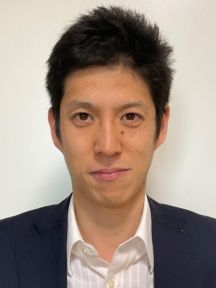
MATSUDA Shoichi
Team Leader, Automated Electrochemical Experiments Team, Center for Green Research on Energy and Environmental Materials, National Institute for Materials Science
Research field
Electrochemistry, Physical chemistry, Energy storage and conversion
Research outline
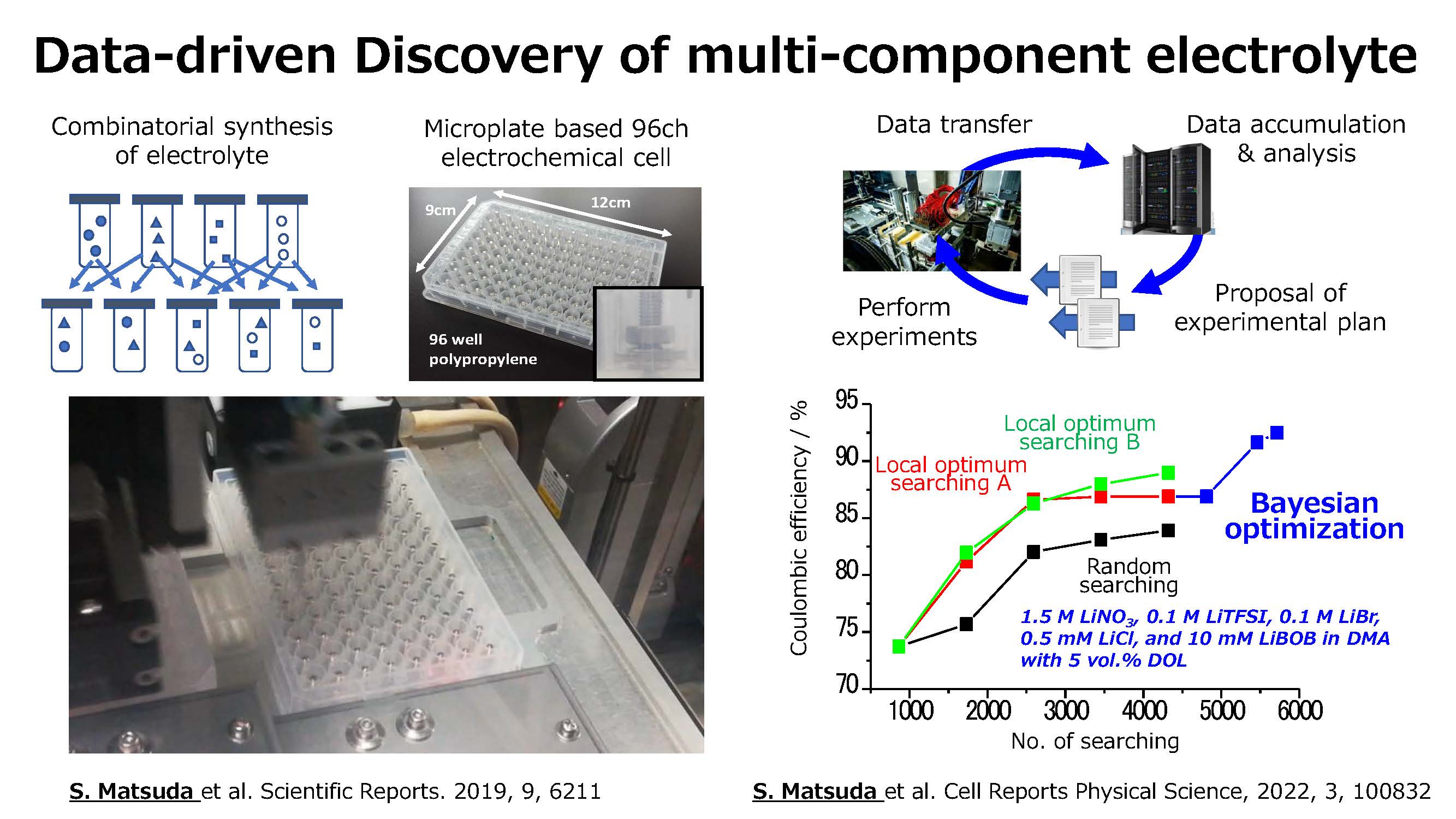
By utilizing automated robotic techniques to achieve high-throughput processing of various experimental procedures, the large-scale experimental datasets can be obtained. Integration with the use of data science methodologies results in acceleration of research development of innovative battery materials and electrocatalyst materials.
Research Interests
Next-generation storage batteries, Electrochemical energy conversion materials, High-throughput experiments, Autonomous automated experiments, Data-driven materials exploration
Assigned university/courses
Institute of Science Tokyo School of Materials and Chemical Technology
Doctoral Program in Chemical Science and Engineering
Message to prospective students
Electrochemical energy conversion systems, such as rechargeable batteries, are fundamental technologies that support modern society. Let's take on the challenge of developing new materials and analysis of reaction mechanism by using automated experimental techniques and data science methods.

HARANO Koji
Principal Researcher, Electron Microscopy Group, Center for Basic Research on Materials, National Institute for Materials Science
Research field
Electron microscopy, Molecular imaging, Supramolecular chemistry, Nanoscience, Data science
Research outline
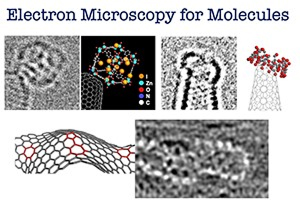
We are promoting research in “cinematic molecular science” that utilizes new sample preparation methods and technologies for capturing and analyzing high-speed electron microscopy data to depict the structures of single molecules and molecular assemblies as high-resolution images, and to record the dynamics of chemical reactions and molecular motion as videos.
Research Interests
Transmission electron microscopy, Single-molecule imaging, High-speed imaging, Nanocarbons, Self-assembled materials
Assigned university/courses
Kyushu University Graduate School of Engineering
Department of Applied Chemistry
Message to prospective students
We are pioneering a new research field that combines electron microscopy and chemistry. By capturing with our own eyes the appearance of molecules that no one has seen before, we hope to share the joy of getting closer to the essence of material functions and chemical reactions.
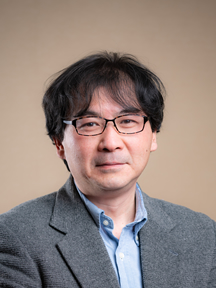
NOGUCHI Hidenori
Interface Electrochemistry Group, Research Center for Energy and Environmental Materials, National Institute for Materials Science
Research field
surface science, catalysis, electrochemistry, laser spectroscopy, energy conversion
Research outline
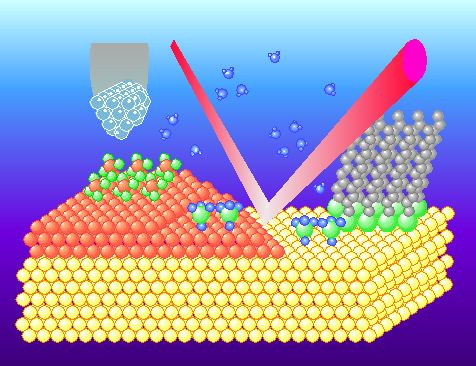
Development of catalyst material focusing on the electrode reaction, secondary battery related electrode reaction, and photocatalytic reaction, mainly for chemical reaction at solid/liquid interface, in which electron transfer plays a major role. We also study on basic chemistry at solid/liquid interface energy conversion reaction is study by using in-situ surface spectroscopy.
Research Interests
electrocatalysts, bio related molecules, surface dynamics, nonlinear spectroscopy, ultrafast spectroscopy
Assigned university/courses
Hokkaido University Graduate School of Chemical Sciences and Engineering
Materials Chemistry and Engineering Course
Message to prospective students
Our laboratory welcomes students interested in electrochemistry and catalytic chemistry. In addition, students who are interested in basic research to investigate the energy conversion process by examining the molecular and electronic structure on the surface using a laser spectroscopy are also welcome.
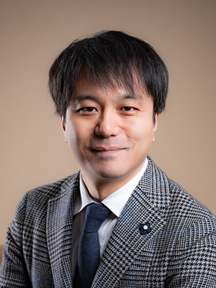
MASUDA Takuya
Director, Research Center for Energy and Environmental Materials, National Institute for Materials Science
Research field
physical chemistry, electrochemistry, surface science, interface science
Research outline
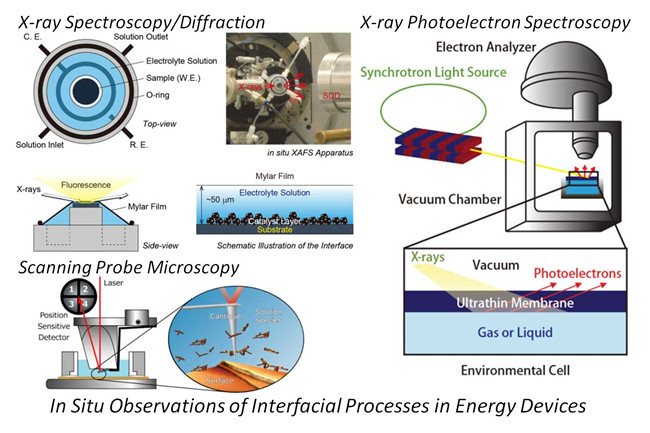
Development of novel in situ characterization techniques using scanning probe microscopy and synchrotron light sources for various physical/chemical processes taking place at surfaces and interfaces, and their applications to energy devices such as fuel cells and rechargeable batteries towards rational design of "highly efficient and durable interfaces" on the basis of reaction mechanism.
Research Interests
electrocatalysts, electrode materials, interfacial molecular layers, synchrotron radiation, scanning probe microscopy
Assigned university/courses
Hokkaido University Graduate School of Chemical Sciences and Engineering
Materials Chemistry and Engineering Course
Message to prospective students
Various important physical/chemical processes which govern cell performance and life time of fuel cells and rechargeable batteries are taking place at surfaces and interfaces. By unveiling the individual processes and the effect of their interplay on cell performance and life time, let’s accelerate the rational design of sophisticated materials and interfaces.
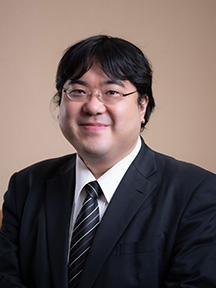
SODEYAMA Keitaro
Field Director, Data-driven Materials Research Field, Center for Basic Research on Materials, National Institute for Materials Science
Research field
computational material science, data science, energy-related materials, first-principles calculations, materials informatics
Research outline
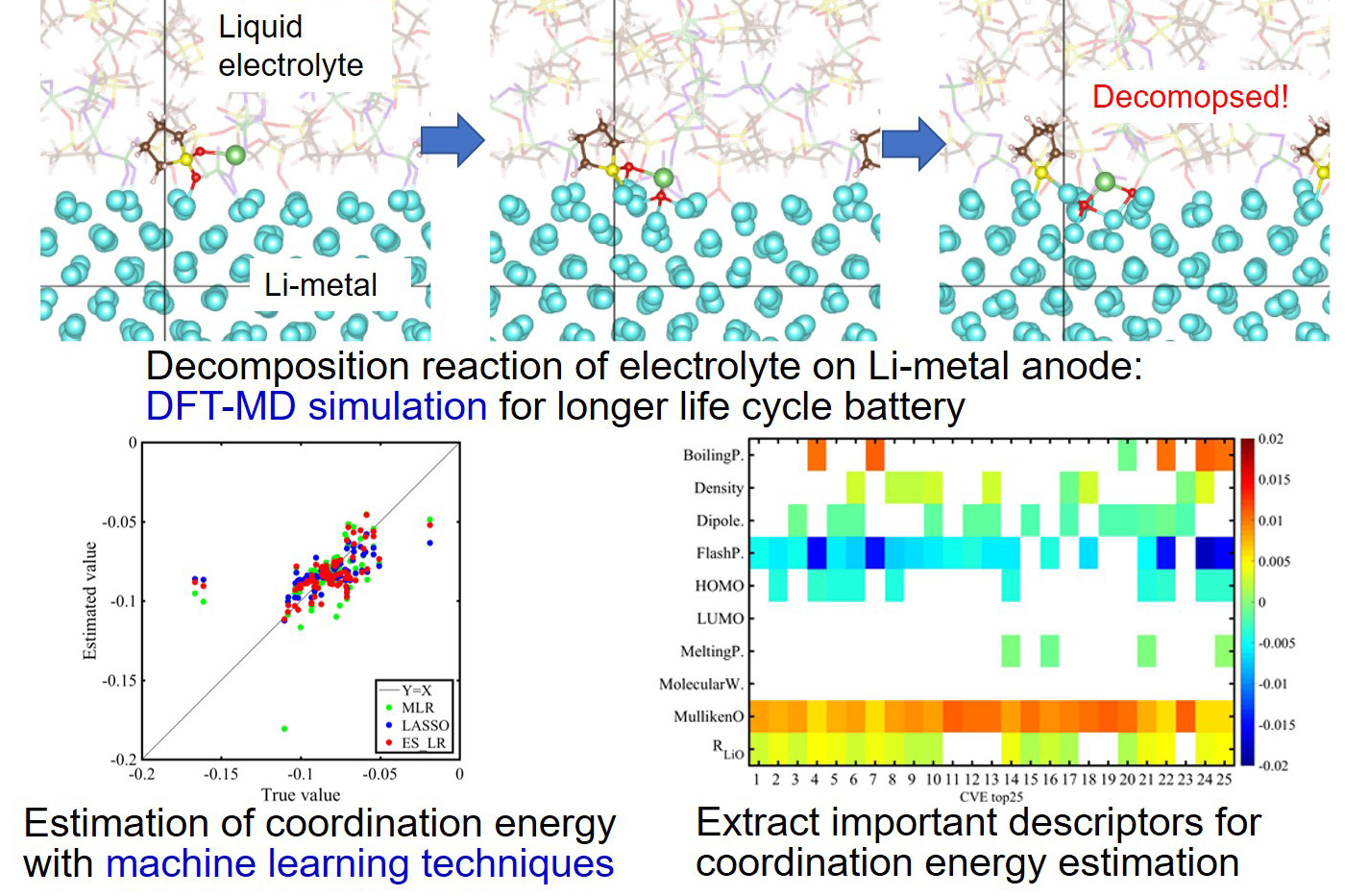
The working mechanism of energy-related materials such as lithium-ion batteries will be clarified by first-principles molecular dynamics simulations using supercomputers. We also use the machine learning techniques to find new feasible materials with experimentalists.
Research Interests
DFT-MD simulation, material search with AI, lithium-ion batteries, magnetic materials, polymer materials
Assigned university/courses
University of Tsukuba Graduate School of Pure and Applied Sciences
PhD : Materials Science and Engineering
MSc : Materials Science
Message to prospective students
Using computational science and data science, we will clarify the essential phenomena of materials with experimental researchers to find truly feasible energy-related materials. We will conduct computer-based research in an international environment.
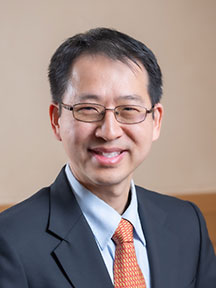
YU Denis
Group Leader, Rechargeable Battery Materials Group, Research Center for Energy and Environmental Materials, National Institute for Materials Science
Research field
electrochemistry, energy storage, battery materials, interface science, ion transport
Research outline
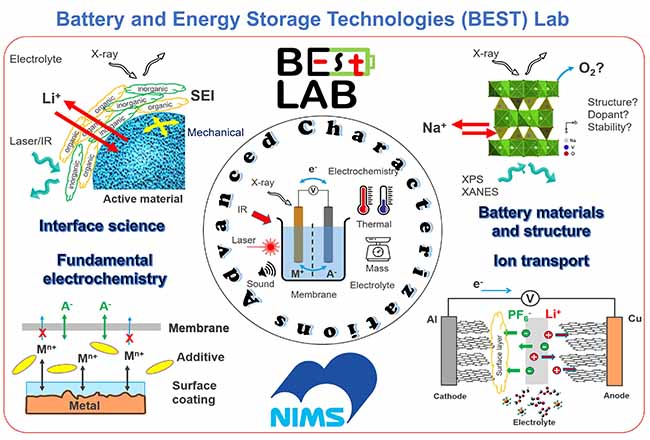
Dr. Yu’s research focus is on developing materials and novel electrochemical systems for energy storage, centering on studying the effect of materials structure and surface reactions on electrochemical performances, as well as on the long-term stability and safety of materials for batteries and supercapacitors.
Research Interests
battery materials and structure, novel electrochemical systems, electrolyte and membrane, battery mechanisms, battery safety
Assigned university/courses
University of Tsukuba Graduate School of Pure and Applied Sciences
PhD : Materials Innovation
MSc : Materials Innovation
Message to prospective students
Using computational science and data science, we will clarify the essential phenomena of materials with experimental researchers to find truly feasible energy-related materials. We will conduct computer-based research in an international environment.

KATSURA Yukari
Materials Modeling Group, Center for Basic Research on Materials, National Institute for Materials Science
Research field
materials informatics, inorganic functional materials, first-principles calculations, web development, large-scale synthesis experiment
Research outline
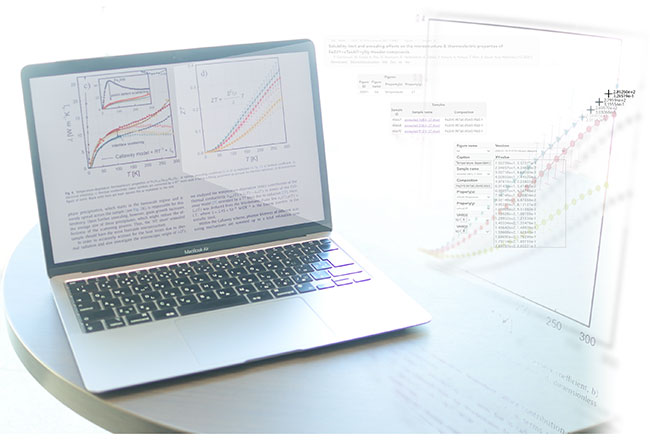
As part of Materials DX, we are pioneering research methods in materials informatics for literature, calculated and experimental data. Working collaboratively with universities, research institutions, and companies, we are constructing databases for various inorganic functional materials such as thermoelectric and magnetic materials. We are conducting research to design novel materials using large-scale experimental data obtained.
Research Interests
new materials search, data collection engineering, crystal structure design, thermoelectric materials, magnetic materials, superconductors
Assigned university/courses
University of Tsukuba Graduate School of Pure and Applied Sciences
PhD : Materials Innovation
MSc : Materials Innovation
Message to prospective students
Research that leverages cutting-edge technologies such as data science is a growing field where the younger generation is taking the lead due to its difficulty for many researchers from older generations to enter. There is a shortage of cross-disciplinary talent who can oversee both data science and materials science on a global scale. In this treasure trove of a new research theme, why don't we change materials science together?

 NIMS researchers directory, SAMURAI
NIMS researchers directory, SAMURAI
 How to
How to  Send email
Send email